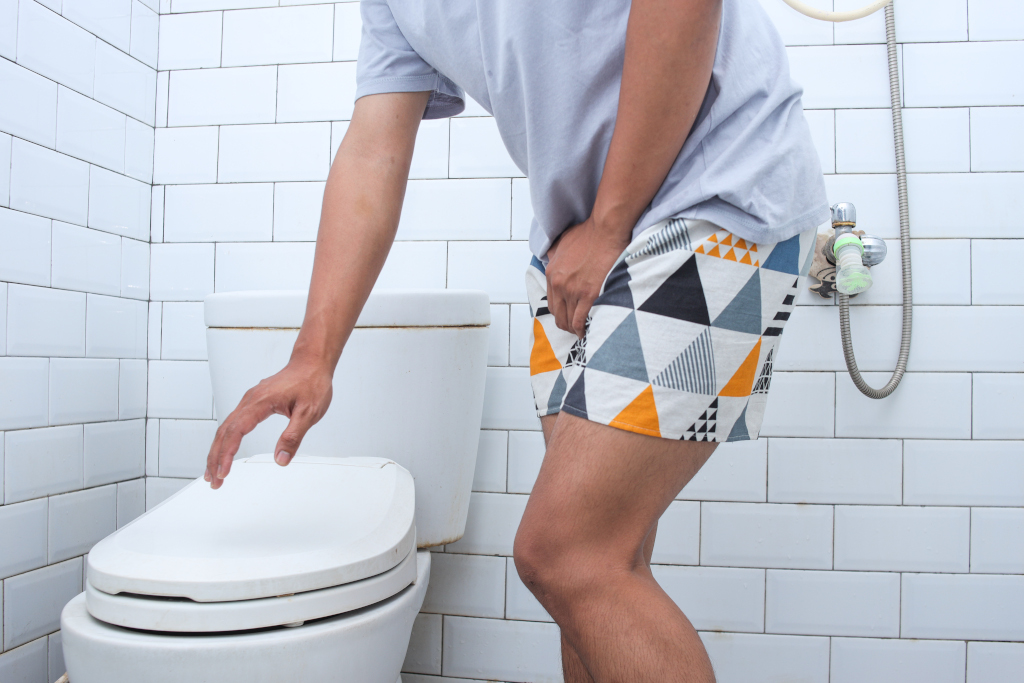We’ve all been there: sitting in traffic, stuck in a meeting, or just too lazy to get up, holding it in even though nature’s knocking louder and louder. You feel the pressure building. You shift in your seat. Your bladder is screaming for relief… and you start to wonder: how bad is it really if I wait a little longer?
Turns out, more is happening inside your body than you might think—and it’s not just about being slightly uncomfortable.
That nagging urge? It’s your body sending an emergency message
Your bladder is like a highly trained messenger. As it fills with urine—a byproduct your body is eager to eliminate—it stretches. Around 200–300 ml of urine (about the size of a soda can) triggers nerve endings in the bladder wall. These nerves send a signal to your brain: “Time to go!”
Ignore it for long enough, and the signal gets louder. By the time your bladder hits its upper limit (around 500 ml or more), you’re dealing with full-blown urgency—possibly even pain.
But wait… can holding your pee hurt you?
Short answer? It depends. Occasionally, delaying a bathroom trip isn’t the end of the world. But doing it often—or for too long? That’s where things can go sideways. Fast.
Here’s what can happen if you ignore the urge too long:
- Overstretched muscles: The bladder’s detrusor muscle stretches to hold urine, which can cause it to weaken over time. This means it won’t empty as effectively later on.
- Urinary retention: Constantly holding it in can lead to a condition where your body physically struggles to release urine, even when you try. Think: pressure without relief.
- Backup into the kidneys: In extreme cases, urine can back up into the kidneys, risking infections, kidney damage, or even failure if untreated.
- Incontinence risks: Overflow incontinence—a fancy term for leaking because there’s too much urine in your bladder—becomes a real and embarrassing possibility.
A real-life example you won’t forget
In 2007, a radio station in California hosted a notorious “Hold Your Wee for a Wii” contest. Contestants had to drink large amounts of water without urinating to win a gaming console. Tragically, one woman died from water intoxication and complications from holding too much urine. Her bladder swelled dangerously, illustrating just how critical this seemingly routine body function is. Your bladder isn’t just “a balloon”—it’s part of a delicate system that, when ignored, can cause real harm.
So… how long is too long?
While every person’s threshold is different, most experts agree you shouldn’t wait more than 3–4 hours to empty your bladder, especially if you feel the thirst-quenching effects of a lot of coffee, tea, or water. Pregnant? You may need to go even more often, as hormones and pressure lower bladder capacity.
How to stay bladder-healthy without obsessing
- Listen to your body: Don’t wait until it hurts. If you feel the urge, go sooner rather than later.
- Hydrate smart: Too little fluid can concentrate your urine (hello, UTI risks), but overhydrating too fast isn’t great either. Find balance.
- Watch your timing: Make it a habit to use the restroom every 2–4 hours during the day. It helps your bladder stay conditioned.
The bottom line
That full-bladder feeling isn’t just an inconvenience. It’s a warning. A signal that your body is doing its job to protect you. Ignoring it occasionally isn’t a big deal—but consistently holding it in, or doing it for sport (please don’t), puts your bladder and even kidneys at risk.
So the next time you feel the urge and wonder if it can wait, remember, your bladder already answered that question for you.
Be kind to your body. Don’t make it beg.




Leave a Comment